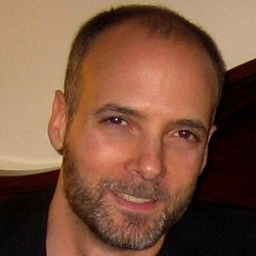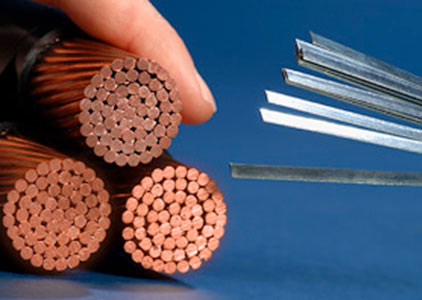Scientists Discover a New Phase of Matter
They discovered that a type of high-temperature superconductor may feature a previously unknown phase of matter that could either work in favor of superconductivity or against it.
Superconductors are usually used in scientific experiments, for example by particle accelerators such as the Tevatron at Fermilab or the LHC at CERN. To reach superconductivity, superconductors are often cooled to absolute zero, which typically requires liquid helium as a coolant. Even high-temperature superconductors need to be cooled halfway to zero. Prior to entering the superconducting phase, electrons are in an energy gap that arises when electrons pair off and drop to the lower energy level, which is the foundation for superconductivity. As soon as the temperature rises, the electrons split up, regain their previous energy level again and a material cannot superconduct anymore as a result.
Stanford's findings suggest that there is another phase in their copper-based superconductor: Many electrons do not pair off, but form an "elusive order" that had not been observed in the past. The researchers said that this state is not understood yet, but further research will highlight whether this phase works in favor of superconductivity or against it. If it is in favor, it can be promoted. If it is against it, it could be suppressed. In the next step, the researchers want to learn to understand the "nature" of this new phase.
The detailed research is published in the March 25 issue of Science.
Get Tom's Hardware's best news and in-depth reviews, straight to your inbox.

Douglas Perry was a freelance writer for Tom's Hardware covering semiconductors, storage technology, quantum computing, and processor power delivery. He has authored several books and is currently an editor for The Oregonian/OregonLive.
-
rubix_1011 ReplyStanford Researchers Discover a New Phase of Matter
Stanford's findings suggest that there is another phase in their copper-based superconductor
So which is it...did they actually 'Discover it' or did they simply find something that needs to be proven, first?
Perhaps you shouldn't be so quick to etch this information in stone. While it is still in the very early discovery phases and not completely validated, it could potentially be true. There is a huge difference to an initial discovery and writing it off as a new scientific law. -
dogman_1234 F@H with electrons.Reply
Hey, this is a great idea for the superconductor industry...when it arrives to take on semiconductors. -
lashabane rubix_1011...Perhaps you shouldn't be so quick to etch this information in stone...Posting something on the internet is not "etching it in stone".Reply -
someguynamedmatt At first, I was like "I don't give a crap", but then I reread the title and went whoa. Then I read the actual article and almost immediately stopped caring...Reply -
sseyler rubix_1011So which is it...did they actually 'Discover it' or did they simply find something that needs to be proven, first?Perhaps you shouldn't be so quick to etch this information in stone. While it is still in the very early discovery phases and not completely validated, it could potentially be true. There is a huge difference to an initial discovery and writing it off as a new scientific law.Reply
A phase of matter isn't "scientific law". Matter phases are emergent phenomena as a direct result of statistical mechanical properties of materials.
-
rubix_1011 I disagree:Reply
Reporting incorrect or invalidated information as truth is more permanent than you think. Take someone who has been wrongly accused of a felony. They often never recover once this has been removed...their name is permanently tarnished for a crime the did not commit.
The same goes for information- it begins as rumor and can be spread verbally or otherwise used and manipulated to work for or against a specific viewpoint.
And you think that once you delete an email from your inbox or remove a photo from a social site, it 'goes away forever'? Think again. Electronic information has an incredibly deep residual hold once it has been saved and submitted. -
scook9 Not all the way to absolute zero, but within a few k of it. A more common and real world use of superconductors is the primary coils in MRIs which are also cooled by liquid heliumReply -
Anomalyx So this "state" of matter is kinda like plasma...?Reply
Plasma isn't another state, it's just a hotter gas.
This new "state" doesn't sound like another state... just a colder solid.
